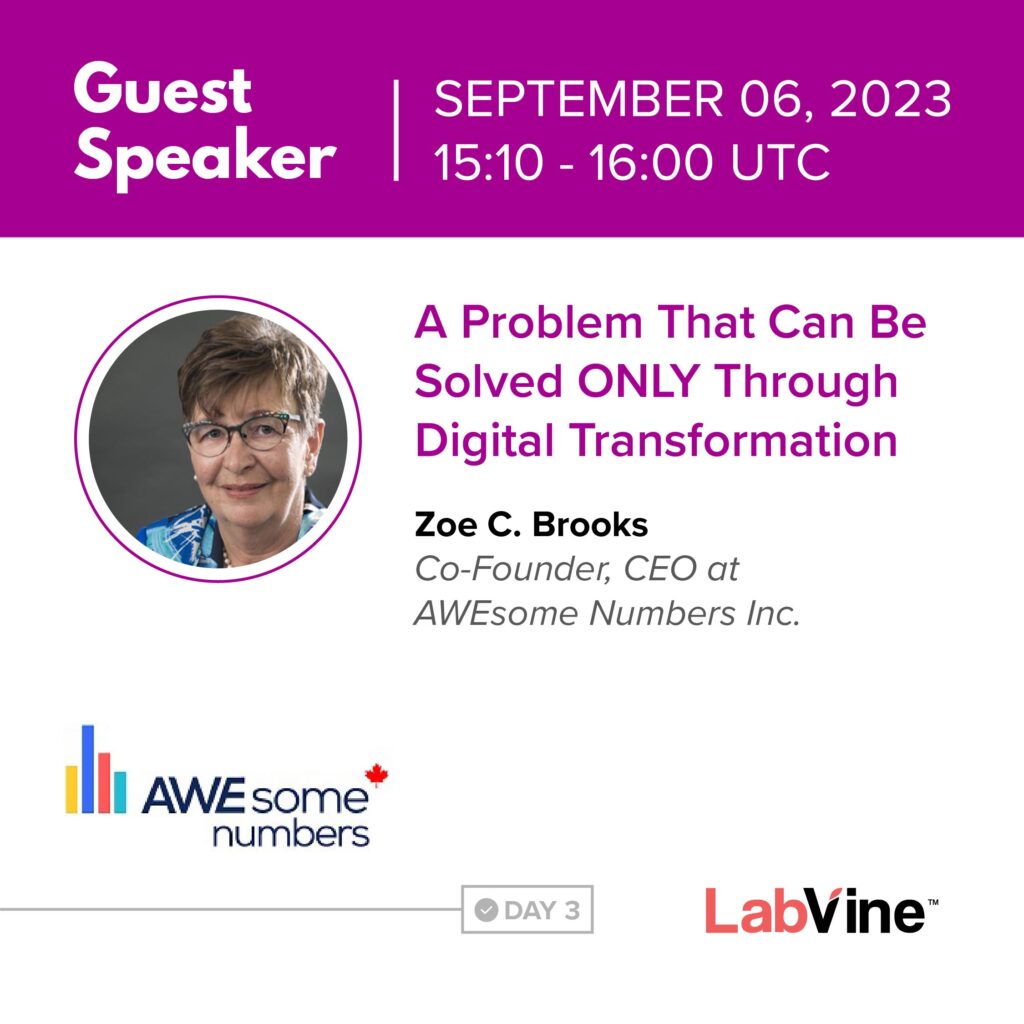Past Events - LabVine LTSS2023 Virtual Event

A Problem That Can Be Solved
Only Through Digital Transformation
Zoe will be speaking at the LTSS2023 Virtual Event hosted by LabVine on Wednesday, September 6th from 11:10 to 12:00 pm Eastern.
Here is the abstract that Zoe will be speaking on:
Abstract:
The field of statistical quality control has seen continuous evolution in best practices over the past three decades. However, the implementation of these practices has not kept pace with the recommendations.
Astonishingly, the fundamental knowledge of quality control from 25 years ago remains largely unimplemented in current practices. In this online workshop, we invite you to participate in a unique challenge to test your QC knowledge using questions from a 25-year-old AACC course titled “Quality Control in Six Simple Steps.” By exploring the concept that “if we’re all doing QC differently, we can’t all be doing it right,” we delve into the struggles faced by one educator who attempted to teach and enable best practices.
Despite offering published courses, textbooks, ten years of teaching at Rutgers University, and numerous presentations, the complexity of effective statistical quality control seems insurmountable within the existing educational programs for laboratory professionals.
Digital transformation harnesses the power of technology to optimize processes, enhance outcomes, and enable data-driven decision-making within the medical laboratory setting. With new software algorithms, we can upgrade existing statistical quality control processes to verified-effective clinical risk management strategies to improve patient health outcomes, reduce healthcare costs, and eliminate opportunities for litigation.
This workshop delves into the possibilities and benefits of replacing the current assortment of QC processes with data-driven decision-making to manage acceptable clinical risk and cost. Case studies will reveal the potential harm to patients and associated healthcare costs resulting from laboratory errors under current practices versus those achieved through digital decision-making. With the aid of new software solutions and seamless integrations made possible by digital transformation, laboratory professionals gain access to far more than just statistical indicators. They can now interpret risk levels, identify probable risk sources, receive recommended actions, and utilize AI-driven comparisons between traditional approaches and new methodologies.
